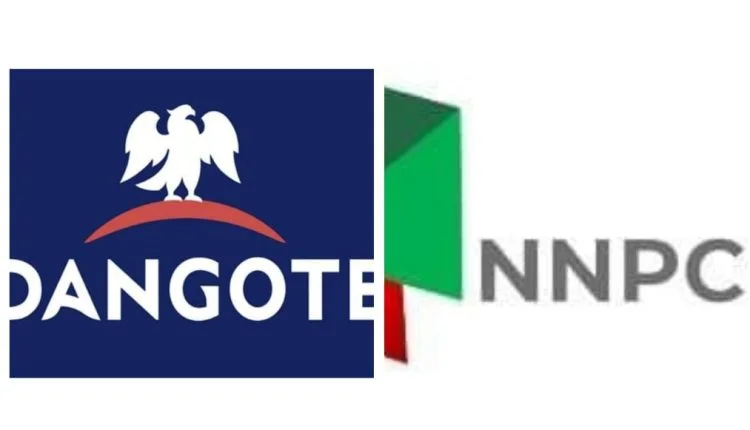In August 2025, the Nigerian National Petroleum Company Limited (NNPC) finalized a two-year contract to supply crude to the Dangote Petroleum Refinery in Lekki, Lagos.
The deal supports Nigeria’s push to provide local refineries with crude in naira.
Crude Allocation
From October 2024 to October 2025, NNPC allocated 82 million barrels to the 650,000-barrel-per-day refinery. Of this, 60% (49.3 million barrels) is in naira.
August saw three naira crude cargoes, with five each for September and October. September loading is underway, with two vessels at terminals.
Naira-for-Crude Initiative
The agreement aligns with President Bola Tinubu’s 2024 naira-for-crude policy to ease Dangote’s reliance on imported feedstock.
Despite earlier hiccups, including a brief halt in naira-based petrol sales, a technical committee resolved issues, ensuring steady supply.
NNPC’s Assurance
NNPC’s spokesperson Andy Odeh confirmed ongoing naira-based crude allocations.
NNPC, Dangote, and the Nigerian Midstream and Downstream Petroleum Regulatory Authority regularly reconcile volumes and costs. The deal, ending in 2027, aims for stable fuel supply.
Government Commitment
The Domestic Crude Oil and Refined Products Sales Committee, led by Finance Minister Wale Edun, met with NNPC, Dangote, and others to confirm no disruptions in fuel supply.
The committee, including Central Bank and Afreximbank representatives, backs the naira-for-crude plan.
Marketers’ Support
Oil marketers praised the deal. Hammed Fashola of the Independent Petroleum Marketers Association of Nigeria said it ensures fuel stability.
Chinedu Ukadike urged including modular refineries in the policy to boost local supply and reduce import reliance.
Why It Matters
The agreement strengthens Nigeria’s energy security, supports local refining, and cuts foreign currency pressure. It also addresses Dangote’s past supply challenges.
What’s Next
NNPC’s consistent crude deliveries could stabilize fuel prices and supply in 2025, but resolving labor disputes with PENGASSAN is key to avoiding economic risks.




















